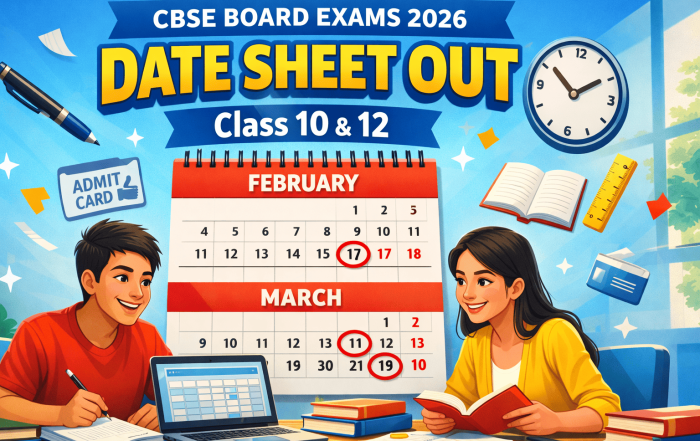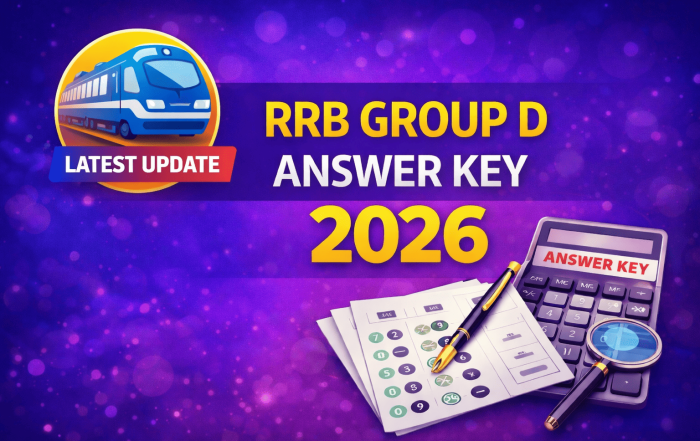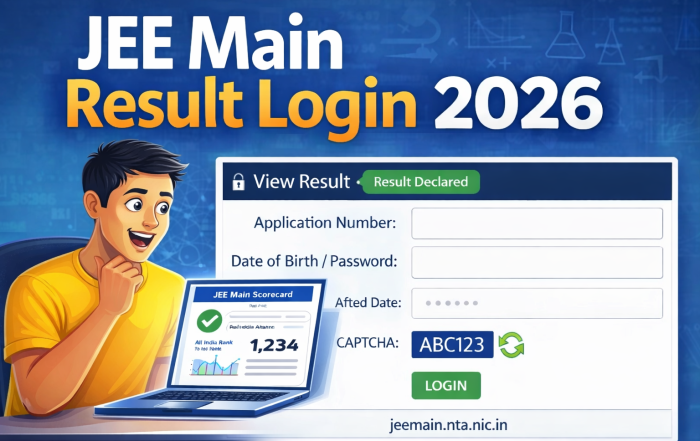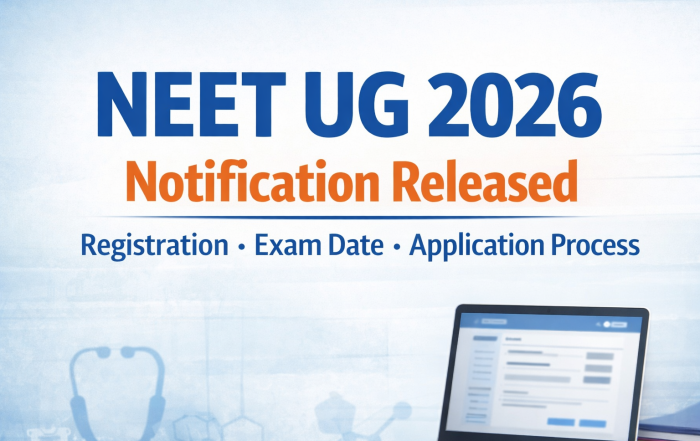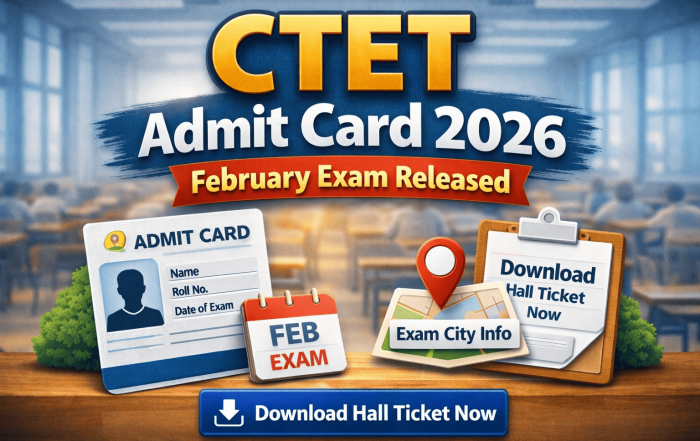RECENT POSTS
CBSE Date Sheet 2026 Out: Class 10 & 12 Exam Dates
CBSE Date Sheet 2026 Out: Class 10 & 12 Exam Dates The CBSE Board Exams 2026 will begin on 17 February 2026. Class 10 exams will end on 11 March 2026, while Class 12 exams [...]
RBI Assistant 2026 Notification: 650 Vacancies Apply Online
RBI Assistant 2026 Notification Released The RBI Assistant 2026 notification has officially announced 650 vacancies across multiple RBI branches in India. Therefore, graduates looking for a stable banking career now have an excellent opportunity. In [...]
RRB Group D Answer Key 2026 Download Link & Objection
RRB Group D Answer Key 2026 Download Link The RRB Group D Answer Key 2026 for CBT 1 (CEN 08/2024) is expected in February 2026. Since the exam was conducted from 27 November 2025 to [...]
GATE 2026 CSE Expected Cut Off & Safe Score Analysis
GATE 2026 CSE Expected Cut Off The GATE 2026 CSE expected cut off for the General category is likely to fall between 30–32 marks after normalization. The Computer Science paper was conducted in two shifts, [...]
JEE Main Result Login 2026: Direct Link to Check Scorecard
JEE Main Result Login 2026 – Check Session 1 & 2 Scorecard Online The JEE Main Result Login 2026 is the official gateway for candidates to check their NTA scores, percentile, and All India Rank [...]
ICMAI CMA Dec 2025 Results Declared: Inter & Final Toppers
ICMAI CMA Dec 2025 Results LIVE Updates The Institute of Cost Accountants of India (ICMAI) has officially declared the CMA December 2025 results for both Intermediate and Final courses. Candidates who appeared for the examination [...]
FSSAI CFSO Recruitment 2026:Notification, Apply Online, Eligibility
FSSAI CFSO Recruitment 2026: Latest Update The Food Safety and Standards Authority of India (FSSAI) is expected to release the FSSAI CFSO Recruitment 2026 notification in March or April 2026. This recruitment offers a strong [...]
NEET UG 2026 Registration: Apply Online, Dates, Fees
NEET UG 2026 Registration Update (NTA) The National Testing Agency (NTA) has released the NEET UG 2026 online application notification for admission to undergraduate medical and allied courses across India. Candidates can complete the application [...]
CTET Admit Card 2026 (Feb) Download Link & Exam Dates
CTET Admit Card 2026 (February) Released — Download Now The Central Board of Secondary Education (CBSE) has issued the CTET Admit Card 2026 for the February session. Candidates can download the hall ticket by logging [...]
SSB HC (Ministerial) PET/PST Admit Card 2026 Released
SSB HC (Ministerial) PET/PST Admit Card 2026 The Sashastra Seema Bal (SSB) has officially released the PET/PST Admit Card 2026 for the Head Constable (Ministerial) recruitment. Candidates who applied for this recruitment can now download [...]

